
There is a little field right next to an old Kentish farmhouse that carries the name First Horse Marsh. In its heyday, it produced enough grazing for one working horse and, being close to the house, it was used to graze the best horse overnight, so that it would be quickest into harness in the morning.
The name serves as a reminder that, even in mainly arable country, there would always have been some grass fields to pasture the horses. Indeed, I have heard it said that at the peak of horse-powered agriculture, one-fifth of the land needed to be devoted to feeding them.
Today, we tend to think of grass as pretty barren and even hostile in terms of its value to game and shooting. In the most intensive of livestock systems, there can be precious little cover for game. Worse still, intensively managed silage grass is a recipe for cut-out nests, if there are any ground-nesting birds on the farm.
With an early-spring option of short turf where the stock is grazing, or the fast-growing silage fields, any birds that look for taller cover in which to lay are likely to make the wrong choice, with dire consequences come mowing time.
Dramatic
Not so long ago, our management and use of grass offered a living for a range of birds, some of which have all but gone from the modern countryside. The corncrake is perhaps the most dramatic example. It was once so common that, according to Mrs Beeton in the 1860s, it was a regular feature in the poulterers’ shops from 12 August to mid-September.
By the 1920s, when my father was a boy, it was much declined, but its rasping ‘song’ was still a feature of warm summer nights in rural Kent. Today, there are only a few left, mostly in crofting areas of the Outer Hebrides, and it is completely absent from most of the country.
هذه القصة مأخوذة من طبعة August 4, 2021 من Shooting Times & Country.
ابدأ النسخة التجريبية المجانية من Magzter GOLD لمدة 7 أيام للوصول إلى آلاف القصص المتميزة المنسقة وأكثر من 9,000 مجلة وصحيفة.
بالفعل مشترك ? تسجيل الدخول
هذه القصة مأخوذة من طبعة August 4, 2021 من Shooting Times & Country.
ابدأ النسخة التجريبية المجانية من Magzter GOLD لمدة 7 أيام للوصول إلى آلاف القصص المتميزة المنسقة وأكثر من 9,000 مجلة وصحيفة.
بالفعل مشترك? تسجيل الدخول
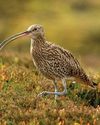
United we stand
Following United Utilities' decision to end grouse shooting on its land, Lindsay Waddell asks what will happen if we ignore our vital moors
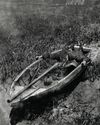
Serious matters
An old gamebook prompts a contemplation on punt-gunning
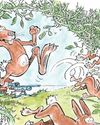
They're not always as easy as they seem
While coneys of the furry variety don't pose a problem for Blue Zulu, he's left frustrated once again by bolting bunnies of the clay sort
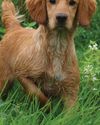
Debutant gundogs
There's lots to think about when it comes to making the decision about when to introduce your dog to shooting
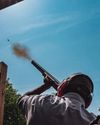
When the going gets rough
Al Gabriel returns to the West London Shooting School to brush up on his rough shooting technique
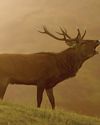
The Field Guide To British Deer - BDS 60th Anniversary Edition
In this excerpt from the 60th anniversary edition of the BDS's Field Guide To British Deer, Charles Smith-Jones considers the noise they make
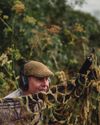
A step too far?
Simon Garnham wonders whether a new dog, a new gun and two different fields in need of protection might have been asking too much for one afternoon's work
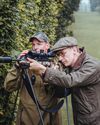
Two bucks before breakfast
A journey from old South London to rural Hertfordshire to stalk muntjac suggests that the two aren't as far detached as they might seem
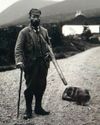
Stalking Diary
Stalkers can be a sentimental bunch, and they often carry a huge attachment to their hill

Gamekeeper
Alan Edwards believes unique, private experiences can help keepers become more competent and passionate custodians of the countryside